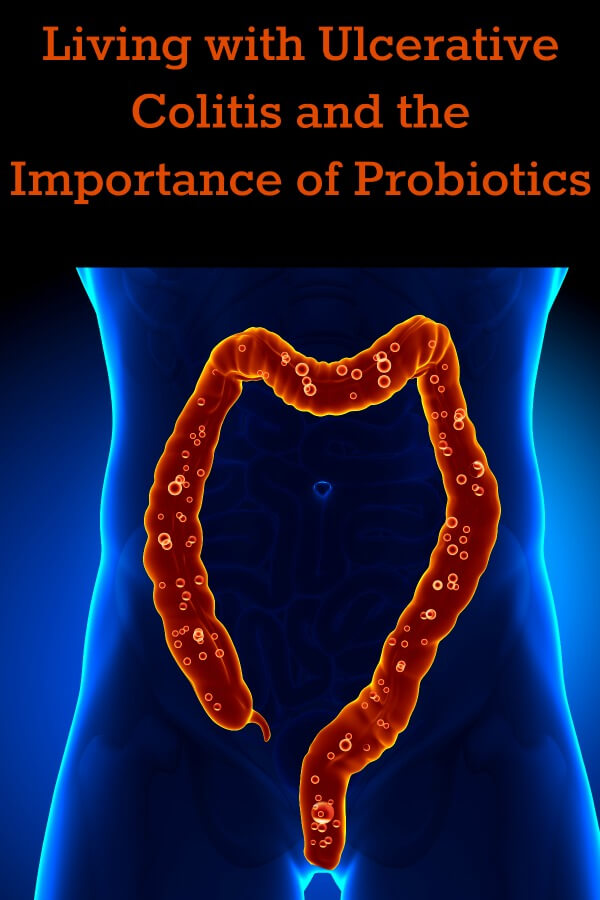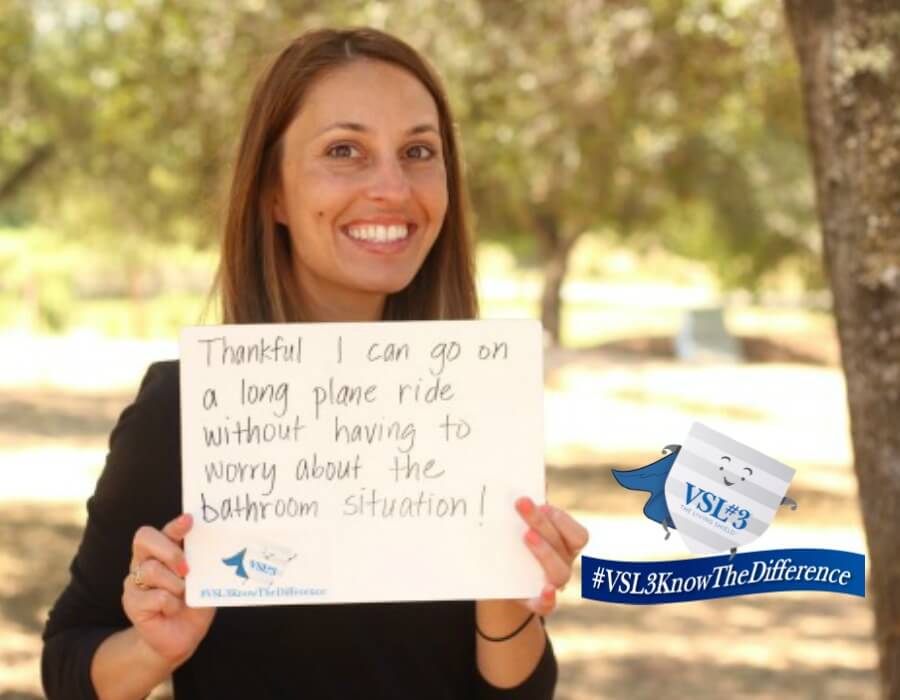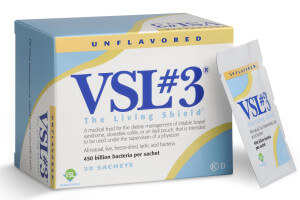Meet Brianna.
Brianna was diagnosed with Ulcerative Colitis (UC) in January 2015.
If you’re not familiar with UC, it is a chronic disease of the large intestine (colon), in which the lining becomes inflamed and develops tiny open sores, or ulcers, that produce pus and mucous. The combination of inflammation and ulceration can cause abdominal discomfort and frequent emptying of the colon. If you experience symptoms of this disease, you should visit a medical clinic immediately to get the proper diagnosis and treatment.
It is believed UC affects as many as 700,000 Americans, and the repercussions of the disease can drastically inhibit normal, everyday activities that many of us take for granted. Life can already be tough, but for those living with chronic gastro issues such as UC, IBS, or ileal pouch, even the simplest of activities such as going to work or the grocery store, can be extremely difficult, if not impossible.
I decided to interview Brianna to help spread awareness about UC, and to share information about the importance of varied probiotic use in the treatment of it.
When did you first realize you had a problem? What were your symptoms? How long did it take to get diagnosed?
Looking back, I had symptoms that could have indicated that something was wrong around the end of October, which was about three months before my diagnosis. Though it wasn’t something that I was really paying attention to at the time, the frequency that I was having to go to the bathroom was increasing and I was having slight abdominal pain throughout the day. Of course, the holidays were around this time so I didn’t really have time to stop and pay attention to what my body may have been trying to tell me. My symptoms continually became worse until I found myself suffering from extreme urgency when going to the bathroom, increased frequency (sometimes up to 20 times a day), diarrhea, abdominal cramps, fatigue and bloody stools. What I originally thought was just a stomach bug had escalated into what I now know as a “flare up” in the last week of December 2014. It took two appointments with my regular doctor, an appointment with a gastroenterologist, lots of blood work and a colonoscopy over the course of three weeks for them to finally give me the diagnosis of Ulcerative Colitis.
Did anything precede the worsening of your condition? Any emotional stress or major life events?
The months leading up to the start of my symptoms contained a new (stressful) position at my job, new apartment, 3 online classes, an internship and the holidays! Needless to say, I may have created a bit of a stressful environment for myself prior to my diagnosis. Though I cannot say that stress is exactly what caused me to get UC, I definitely think that it had a large part in it.
Did you make any lifestyle or dietary changes in response to your illness?
I initially had to make a lot of dietary changes during the first month after my diagnosis. I had trouble eating literally everything so I pretty much lived on rice, crackers and a lot of gatorade and water for about a month until I started to improve. Since then, I have been able to slowly add in additional foods over the past six months to where I have almost resumed my “pre-UC” diet. Before I was diagnosed with Ulcerative Colitis, I tried to make as many meals at home as possible and I have continued that post diagnosis. I try and stay away from fast food as much as possible and still try to keep the tougher to digest foods such as red meat and nuts out of my diet. For more on healthcare leadership and management, check out this article from https://www.proxsysrx.com/leadership/
What have you found most helpful in dealing with UC?
The thing that I have found to be most helpful in dealing with UC was actually a video by Hank Green in which he discussed life with Ulcerative Colitis. He explained how even though it can sometimes be difficult dealing with the new challenges that UC brings, we adapt and create a “new normal” for ourselves. I first watched it a couple weeks after I was diagnosed and I was feeling pretty down about the new life that I had been forced into. The video helped me to start to try and look at things in a positive light and just relax! Diet, exercise, supplements and medication can be extremely important to your recovery but I believe that nothing will work if you don’t also work on your mental health.
Do you have any advice for others who may think they have UC or are currently suffering from it?
I could probably go on for hours with all of the advice that I wish someone had given me when I was first diagnosed but the most important piece of advice that I could give is that that you are not your disease. Yes, it will take up a good amount of your time but your disease does not define who you are as a person. Take time to separate your life and who you are from your disease. This may mean spending time educating yourself about UC but then also remembering to step away from the computer or put the book down and enjoy the little joys that life has to offer whether it be family, friends or a hobby or activity that you enjoy.
One piece of advice that I do want to give to people who may think they have UC is to remember that you are in charge of your own medical care. You are the one that is experiencing the symptoms and having to deal with how it affects your life, not the doctors. There is absolutely nothing wrong with asking for tests that you think you may need or a referral to a specialist if you haven’t already seen one.
Has there been any emotional impact on you?
Unfortunately, UC had a large emotional impact on me and it is something that I continue to deal with even today. Before I was diagnosed, we were planning on trying to have a baby in April but because of my UC, it was something that had to be pushed back. As of my last doctor’s appointment one week ago, it will be at least another six months before I can safety start to try to get pregnant. This was a huge blow to me as having a family is extremely important to me and I struggled with depression over it for the first couple months. Even though it is something that I still get a little bummed out about on occasion, I’ve started to try and think of it as an extra amount of time that I’ve been given to enjoy the freedom of a childfree life and get my body into the best possible condition for a baby.
How about physical impact (i.e., family vacations, outings, social gatherings, etc.)?
UC has definitely made me more aware of where the bathrooms are in every location. Even though I have it under control pretty well now, I can still remember the horrible days of running to the bathroom 15-20 times per day and I have continued the habit of scoping out the nearest bathroom, just in case. We actually had to postpone our dream trip to Oregon for our one year wedding anniversary because I wasn’t sure that I was going to be well enough to deal with the flight and actually enjoy myself while we were there.
I’m so thankful that I don’t have to worry about bathroom situations, but I’m hoping that this post will help foster some empathy for those who are living with chronic gastro issues!
So, now you’ve heard Brianna’s story. I also want to share a bit of information about probiotic use when it comes to chronic health conditions such as UC, IBS or ileal pouch. Not all probiotics are the same. It’s important to look for specific probiotic strains when researching them. One brand in particular, VSL#3, is what I want to discuss today.
So probiotics work in three areas of the gut: the microbial barrier, chemical barrier and physical barrier. It is suggested that adults take at least one billion cells (also called colony-forming units or CFU’s) daily. VSL#3 has at least 112.5 billion CFU’s.
VSL#3 is a high-potency probiotic medical food that is clinically proven in the dietary management of IBS, UC and ileal pouch. In cases of UC, patients have been shown to benefit when adding VSL#3 medical food to traditional therapies. It differs from other probiotics in that it is a medical food, not a supplement, and therefore must be used under medical supervision. VSL#3 is also at least 10 times more potent than the average probiotic, and is gluten-free.
You can learn more about how VSL#3 works, discover the difference, and watch this short video:
If you’d like to try VSL#3, it is available online HERE* or you can visit the pharmacy locator to find your nearest location: http://www.vsl3.com/pharmacy-locator/united-states/
*Use coupon code “Doctor” at checkout to receive $5 off your next purchase!
You can also connect with VSL#3 probiotic on Facebook or YouTube.
Visit the VSL#3 Facebook page and enter the VSL#3 The Discover the Difference Giveaway before 7/21/2015 where one grand prize winner will receive a $500 Amex Gift Card and two runners up will win a 2-month supply of the VSL#3 product of their choice (over $300 product value)!
VSL#3® is a high potency probiotic medical food that’s clinically proven in the dietary management of IBS, ulcerative colitis, and ileal pouch. To learn more visit www.vsl3.com and LIKE the brand on Facebook.
This is a product-provided, sponsored conversation that contains affiliate links. All opinions, text and experiences are my own. VSL#3 is a medical food and must be used under medical supervision. Comments submitted may be displayed on other websites owned by the sponsoring brand.









Liz duffy says
I have none of this but I do have severe abdominal pain and the GI doctor did an endoscopy but he couldn’t find anything wrong with my tummy. I’m tired of this pain, I cry, and I can never sleep. I’m ALWAYS in pain. Im not sure what else they could test for, any ideas?
Shanti Landon says
Hi, Liz! I’m sorry to hear about your health issues. =( Have you seen a naturopath? I would highly suggest it, as they can do a more in-depth panel of food allergy tests and mineral tests that may help give you some insight. I hope that helps!